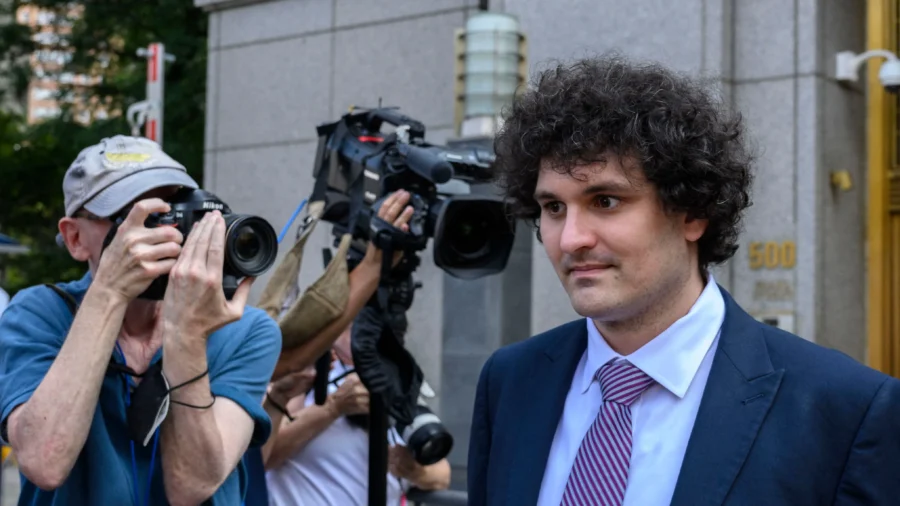Cryptocurrency guru Sam Bankman-Fried has been found guilty of fraud, money laundering, and more.
A 12-member New York jury convicted the 31-year-old FTX founder on all seven counts of fraud and conspiracy in relation to his role in a scheme that cheated customers and investors of at least $10 billion.
He now faces decades in prison. U.S. District Judge Lewis Kaplan set Mr. Bankman-Fried’s sentencing for March 28, 2024.
His defense attorneys, who raised objections to multiple decisions made by Judge Kaplan both prior to and during the trial, are expected to appeal the verdict.
Mr. Bankman-Fried had pleaded not guilty to all seven counts. He had attempted this week to convince jurors that while he had made mistakes and may have been in over his head attempting to run FTX, one of the world’s largest cryptocurrency exchanges, he did not knowingly defraud investors.
But under cross-examination from prosecutors, he often spoke evasively and struggled to remember many events.
Prosecutors alleged that Mr. Bankman-Fried and other FTX executives knowingly misused customers’ money to fund losses at Alameda Research, a hedge fund that he owned, to splurge on a lavish lifestyle of beachfront homes, and to buy influence among regulators through political donations.
The trial featured the testimony of Mr. Bankman-Fried’s former partners and employees, all of whom had already pleaded guilty to fraud charges and were testifying for the prosecution.
These witnesses, including former Alameda CEO Caroline Ellison, former FTX chief technology officer Gary Wang, and former FTX director of engineering Nishad Singh testified that Mr. Bankman-Fried either directed or was aware of the misuse of funds.
Mr. Bankman-Fried sought to place the blame on his former colleagues, arguing that they were the ones who acted fraudulently and without his awareness.
He portrayed himself as a big-picture executive, who often became aware of bad practices by subordinates only after the fact.
He recalled, for example, telling Ms. Ellison that she had put investors at risk by failing to hedge, or protect, her positions at Alameda.
“I called a meeting with Caroline, and I told her that I was very concerned about Alameda, to a certain extent about its failure to hedge but much more about its current market exposure,” Mr. Bankman-Fried testified.
In response, he said: “She started crying. She agreed that Alameda should have hedged. She agreed that maybe Alameda shouldn’t have made certain venture investments. She offered to step down.”
Prosecuting attorney Nicolas Roos told jurors on Nov. 1 that Mr. Bankman-Fried’s crypto empire was “a pyramid of deceit built by the defendant on a foundation of lies and false promises, all to get money, and eventually, it collapsed, leaving countless victims in its wake.”
Defense attorney Mark Cohen argued that his client did the best he could to explain to jurors how things went wrong, despite his best intentions.
“He did his best to remember and speak to you, he set out his memory as accurately as he could, and he told you what happened and, critically, what he believed in good faith at the time,” Mr. Cohen said.
The defense also argued that the prosecution’s witnesses had an incentive to blame Mr. Bankman-Fried, given that their sentences would be reduced if they helped to convict him.
Mr. Bankman-Fried said that one of his mistakes was failing to hire a chief risk officer, who could have prevented many of the failures at FTX and Alameda.
The prosecution, however, said that this was not an oversight but rather part of the plan to take customers’ money.
“If you’re embezzling money,” Assistant U.S. Attorney Danielle Sassoon said, “of course you’re not going to have a chief risk officer.”
Approximately $9 billion of customers’ and investors’ money went missing in the 2022 collapse of crypto exchange FTX and its affiliated hedge fund Alameda Research.
No proceedings are scheduled for Nov. 3, due to a juror’s schedule conflict.
What has not been mentioned in this trial is the more than $100 million of FTX money that Mr. Bankman-Fried donated to politicians prior to FTX’s collapse.
He was the second-largest donor to President Joe Biden’s election campaign in 2020, contributing more than $5 million, and the second-largest donor to Democrat politicians and political action committees (PACs) in the 2022 midterms.
Some of the largest recipients of FTX donations were Sens. Debbie Stabenow (D-Mich.) and John Boozman (R-Ark.), who led the Senate Agriculture Committee, which oversees the Commodity Futures Trading Commission, one of the regulatory agencies for cryptocurrencies.
Other top recipients included Sens. Kirsten Gillibrand (D-N.Y.), Maggie Hassan (D-N.H.), Cory Booker (D-N.J.), Lisa Murkowski (R-Alaska), and Susan Collins (R-Maine).
A number of PACs, primarily those affiliated with the Democratic Party, also received large donations from Mr. Bankman-Fried.
On Oct. 16, Mr. Singh testified that the political donations made by FTX’s senior executives were made from customer funds.
From The Epoch Times

